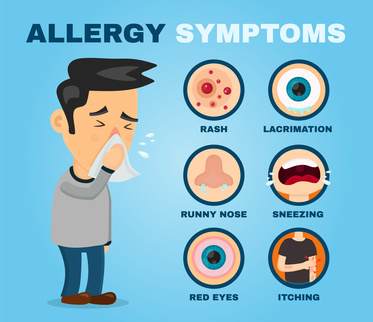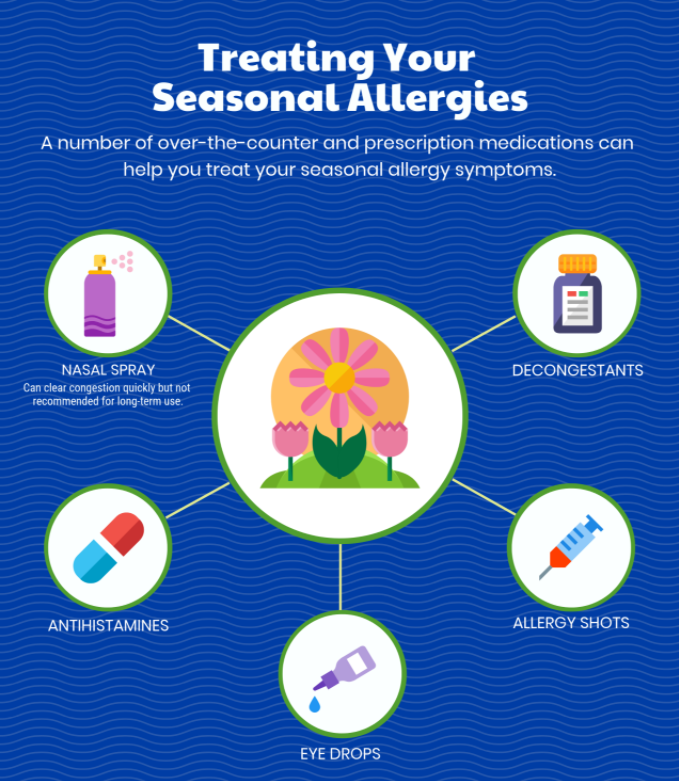For most people, springtime means plenty of fresh air, pretty blooming flowers, and beautiful colours; however, for the other 30% of the population (including myself), springtime means runny noses, watery eyes, constant sneezing, and itchy skin among many other symptoms – those affected by seasonal allergens like pollen are far too familiar with some of these. If only there was something effective and cost-efficient that could help alleviate our allergies.
 Common Allergy Symptoms
Common Allergy Symptoms
Credit: Bioresonance, bioresonance.com
With allergy season approaching just around the corner, usually at the start of spring, some of us may have already started experiencing these symptoms. Those with seasonal allergy, or allergic rhinitis (hay fever), have probably tried many strategies to help manage their symptoms. Some opt for over-the-counter medications, while others opt for lifestyle changes like tightening cleaning regimens, replacing air filters, or even avoiding outdoor activities where airborne allergens are more common. Although these strategies may work for some, they are costly and take up excess time.
 Treating your Seasonal Allergies
Treating your Seasonal Allergies
Credit: Beaumont, beaumont.com
How does an allergic reaction happen?
Before we start to understand why a new allergy-alleviating strategy might work, we need to first explore how seasonal allergens actually cause an allergic response.
 Examples of Seasonal Allergens
Examples of Seasonal Allergens
Credit: HealthJade, healthjade.net
Let’s take tree pollen as an example. During springtime, trees will start to release their pollen as airborne particles. Sometimes, these particles enter through our nose, and our body incorrectly tags them as dangerous foreign substances. Our first reaction would be to sneeze in an attempt to rid the nasal cavity of these particles. The tree pollen can also stimulate mast cells, our body’s defending cells, to release a compound called histamine that travels through our body to various sites. Histamine is responsible for causing runny noses, watery eyes, and all the other symptoms of seasonal allergy. Essentially, pollen allergy is our body overreacting to these airborne foreign substance. The entire process is drawn in more detail below (0–1:45 min).
Why Do Some People Have Seasonal Allergies (0–1:45min)
Credit: Eleanor Nelson TedEd, youtube.com
So what can I do to relieve my symptoms?
New research shows that decreasing allergy symptoms may be as simple as decreasing our stress. Dr. Yamanaka-Takaichi at the Osaka City University has found that during times of stress, there is an increase in the size and number of mast cells – the same cells that produce histamine during our allergic reactions. When we are stressed, our body releases CRH, a stress hormone that promotes our mast cell to multiply. An increase in mast cells directly correlates to an increase in histamine, and leads to stronger allergic reactions.
What this means for us is that de-stressing can actual help alleviate some of our allergy symptoms. Although it may not completely rid us of our allergies, it has shown to decrease the severity of allergic reactions in some patients.
Like Dr. Yamanaka-Takaichi says, next time your allergies act up, remember
“Relieve your stress, relieve your allergies.”
~William Lee

4 responses to “Stress in Allergy Alleviation”